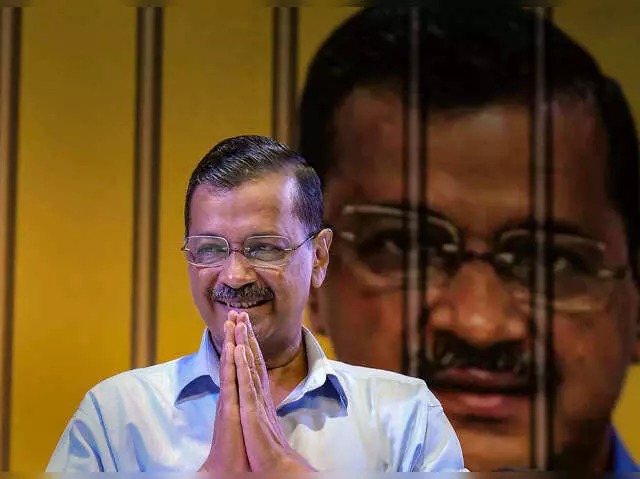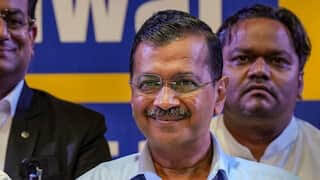Supreme Court Denies Urgent Hearing for Kejriwal's Bail Extension
Chief Justice DY Chandrachud to Decide on the Hearing Date Amidst Ongoing Liquor Policy Scam Investigation;

New Delhi– In a significant development, the Supreme Court of India has declined an urgent hearing for Delhi Chief Minister Arvind Kejriwal’s application to extend his interim bail by one week on medical grounds. Kejriwal, who was arrested in March in connection with the alleged liquor policy scam, had been granted interim bail earlier this month to allow him to campaign for his party, the Aam Aadmi Party (AAP), ahead of the crucial elections for Delhi's seven Lok Sabha seats.

Kejriwal’s interim bail, which was set to expire on June 1, was critical for his involvement in the election campaign. The Delhi Chief Minister had been ordered to return to Tihar Jail by June 2, leaving little room for maneuver. His legal team sought an urgent extension of the bail period, citing medical reasons.
However, hopes for an immediate resolution were curtailed when a vacation bench of the Supreme Court, comprising Justice JK Maheshwari and Justice KV Vishwanathan, announced that the Chief Justice of India (CJI) DY Chandrachud would decide on the scheduling of Kejriwal's plea. "The CJI will take an appropriate decision on listing this plea," stated the bench, emphasizing that the decision on the urgent hearing lies solely with the Chief Justice.
This decision comes in the backdrop of a reserved verdict on Kejriwal's main petition challenging his arrest by the Enforcement Directorate (ED). The original case saw its last hearing on May 17, and the judgment is awaited. The denial of an immediate hearing means that Kejriwal’s fate, in terms of the interim bail extension, remains uncertain until further notice from the Chief Justice.
Background of the Alleged Liquor Policy Scam
Arvind Kejriwal’s arrest in March was a significant blow to the AAP, especially with the Lok Sabha elections looming. The alleged liquor policy scam involves accusations of corruption and financial irregularities in the formulation and implementation of the Delhi government's liquor policy. The Enforcement Directorate has been investigating these allegations, which led to Kejriwal’s arrest.
The AAP has consistently denied the allegations, labeling them as politically motivated. Kejriwal’s legal team has argued that his arrest was unwarranted and has been fighting to secure his release on a more permanent basis. The interim bail granted earlier this month was seen as a temporary reprieve, allowing Kejriwal to engage in political campaigning.
The Legal Journey So Far
Kejriwal’s legal battles have been intense and closely followed. The interim bail granted to him was contingent upon his participation in the election campaign, demonstrating the judiciary's recognition of the importance of his role in the democratic process. However, the requirement to return to jail by June 2 created a narrow window for his legal team to seek further relief.
The vacation bench's referral of the matter to CJI Chandrachud indicates the gravity of the situation and the need for a considered decision at the highest judicial level. The reserved verdict on the main case also adds a layer of complexity, as the outcome could significantly impact the Delhi Chief Minister’s political and personal future.
Political Implications
The Supreme Court's decision has significant political implications. Kejriwal’s active participation in the election campaign is crucial for the AAP, which seeks to consolidate its position in Delhi. The denial of an immediate hearing could disrupt campaign plans and impact voter sentiment.
Moreover, the ongoing legal challenges highlight the contentious nature of the allegations against Kejriwal and the AAP. The case has become a focal point of political discourse, with opposition parties leveraging the situation to criticize Kejriwal's administration.
Conclusion
As the Supreme Court defers the decision on Arvind Kejriwal’s interim bail extension to the Chief Justice, the political and legal stakes remain high. The upcoming judgment on the main case will be pivotal, potentially altering the landscape of Delhi’s political arena. For now, Kejriwal and the AAP must navigate these turbulent waters, balancing legal strategies with electoral ambitions. The Chief Justice’s decision in the coming days will be keenly awaited, not just by Kejriwal and his party, but by the entire nation observing the unfolding political drama.

